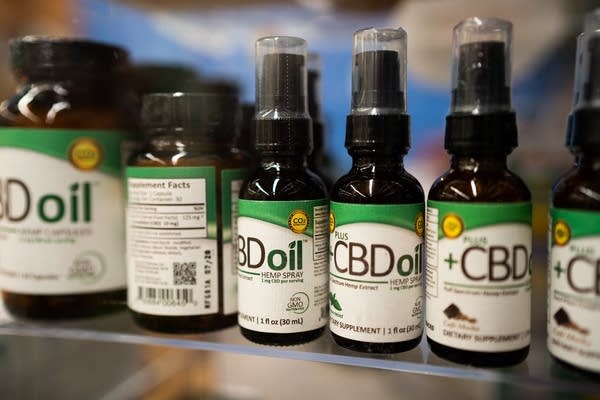Growing hemp and CBD oil industry face legal uncertainty

Bottles of CBD oil sit for sale inside the Mississippi Market Co-op in St. Paul on Monday.
Evan Frost | MPR News
Go Deeper.
Create an account or log in to save stories.
Like this?
Thanks for liking this story! We have added it to a list of your favorite stories.


